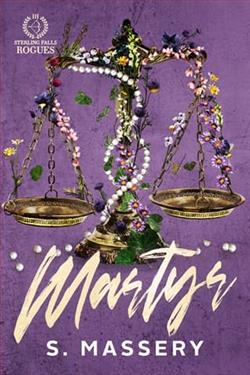Page 62 of How to Walk Away
This wasn’t self-indulgence, the article assured me. This was therapy.
I had to see what I wanted. I had towantwhat I wanted. I had to create a vision to move toward. The more time I could spend making that vision real in my head, the stronger its pull would be. So I let myself long for my old life to the point of aching, on the theory that the more I longed for it, the more strength I would conjure to go after it.
Was centering my image around Chip a little bit antifeminist?
Maybe.
You could argue it either way. You could read it as a rescued-by-the-prince fantasy, I suppose—though, in truth, Chip didn’t rescue me. He didn’t do anything but behold my awesomeness. I did it all myself. Would my women’s studies professor from college point out, though, that my accomplishment wasn’t significant or meaningful or emotionally resonant until it was appreciated by a man? Sure. Okay. That’s fair. Maybe that was something to work on someday in therapy. But I had four and a half weeks left, and that visualization was addictively powerful. I’d take any power I could get.
Getting focused made me feel in control. It cleared my head. It’s possible the worst thing about those first two weeks in the hospital was being so directionless, so passive, so lost.
***
THEN, ONE NIGHT,Kit came in with a stack of articles on the health benefits of singing and slapped them down on the rolling tray.
“I spent the day online,” she said, “researching why you should sing.”
I eyed her stack. “I’m not going to sing, Kit.”
She lifted up the top third of them. “These detail the emotional benefits of singing.”
“Not interested.”
She lifted up the second third of them. “These are the social benefits.”
I shook my head. “Don’t care.”
“And these”—she held the final third up like the Statue of Liberty—“are the physical benefits.”
I sighed.
Kit started counting off on her fingers. “Singing helps release oxytocin and dopamine and endorphins. It decreases anxiety and depression. It reduces stress and helps regulate the endocrine system. It creates better oxygenation in the blood and leads to better sleep. It increases antibodies and strengthens the immune system. And—” She stepped closer for her grand finale.
“Do not say it makes you happy—”
“It makes you happy.”
I dropped my head back against the pillow. “I don’t want to be happy.”
“Fine. Don’t be happy. But sing anyway. Because it’s good for your health in just about every possible way.”
“Does it reduce inflammation in the spinal cord?”
“There’s no study showing it doesn’t.”
I had to hand it to her. She was ready for me. That girl was going to get me singing or die trying. She described study after study. She told inspirational stories. She barraged me with statistics and inspiration. A study in Denmark—or was it Holland?—had tracked three hundred cancer patients, half of whom joined choirs and sang at least three times a week, and half of whom, the control group, did not. The singers were more likely to go into remission, and stay there—and the singers increased their life expectancy by six months over the nonsingers.
When I started to protest, she said, “I know, I know. You don’t feel like singing. Well guess what? You seem to believe that you can only sing if you’realreadyhappy. But I believe that singingmakesyou happy, and science appears to be backing me up. Plus, an endorphin or two wouldn’t kill you.”
“Look, I just don’t think I can be happy anymore.”
“Well, I think you can.”
“Why do you keep pushing this?”
“Because you love to sing.”
Iused tolove to sing. “I love to sing exactly as much as everybody else.”















